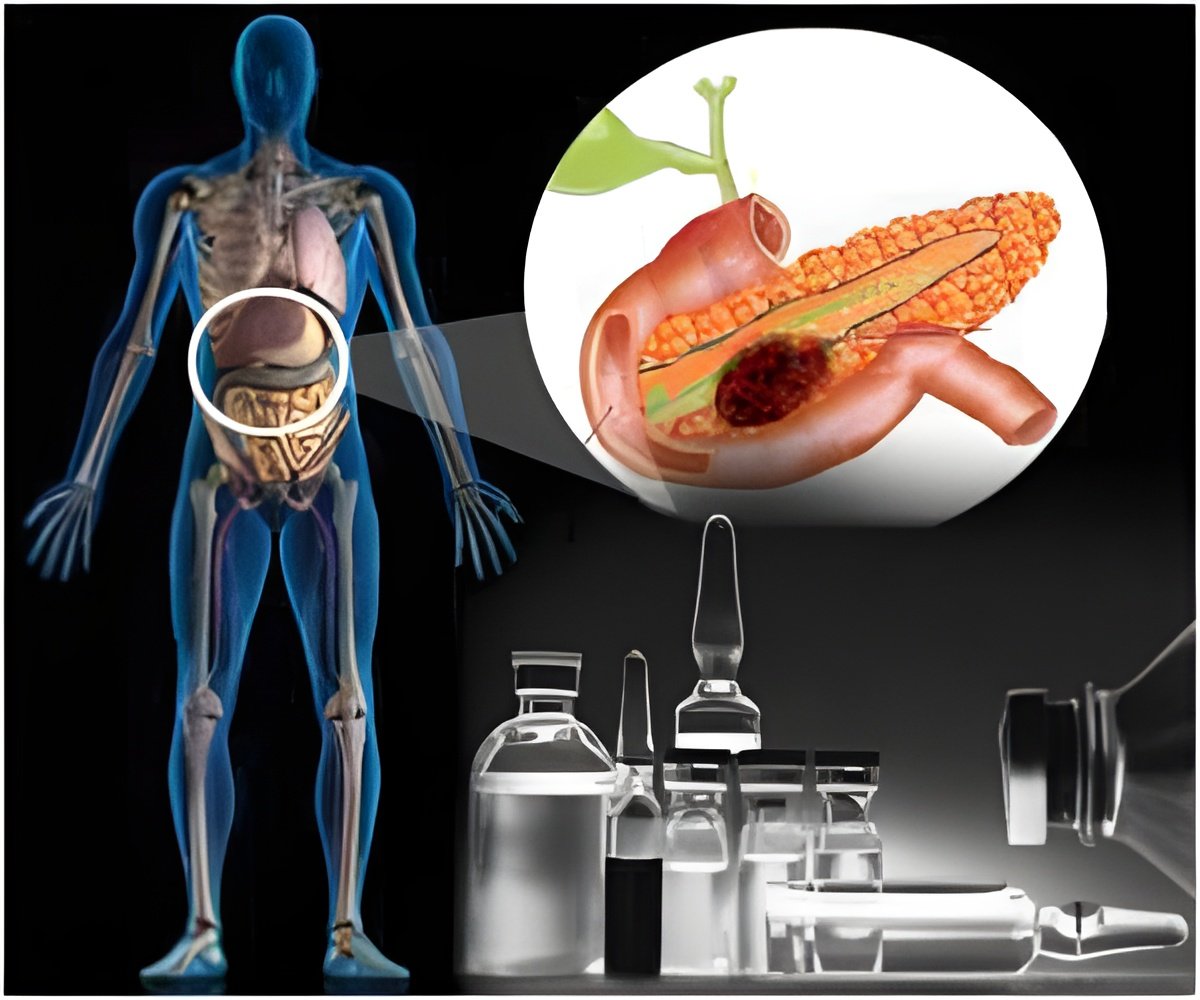Two drug combinations that simultaneously block two major signaling pathways downstream of the protein KRAS, which is aberrantly active in most pancreatic cancers, may provide a new treatment option for Pancreatic Cancer patients.

Pancreatic cancer is one of the deadliest types of cancer, with a five-year survival rate of just 6 percent. Most pancreatic cancers harbor mutations in the KRAS gene. Because these mutations drive many of the cancerous characteristics of pancreatic cancer cells, the KRAS protein is a prime therapeutic target. However, efforts to develop clinically useful drugs that block KRAS activity have been unsuccessful.
"KRAS has been a daunting therapeutic target," said Barry Nelkin, Ph.D., professor of oncology at the Sidney Kimmel Comprehensive Cancer Center at Johns Hopkins in Baltimore, Md. "By combining drugs that simultaneously block two of the major signaling pathways triggered by KRAS, we have found a way to indirectly target this challenging protein.
"Our preclinical results were so positive that we have initiated a phase I clinical trial to evaluate one of the drug combinations, dinaciclib plus MK2206, in patients with pancreatic cancer."
In prior studies, Nelkin and colleagues found that an investigational drug called dinaciclib had antitumor effects in mouse models of pancreatic cancer.
"Dinaciclib blocks the activity of a protein called CDK5, which is a key part of one of the signaling pathways that KRAS uses to exert its cancer-driving effects, the Ral pathway," explained Nelkin. "We wanted to investigate whether combining dinaciclib with a second drug that blocks one of the other signaling pathways triggered by KRAS would have even greater antitumor effects."
Advertisement
The combination of dinaciclib and MK2206, which blocks the PI3K/AKT pathway triggered by KRAS, substantially inhibited tumor growth and reduced tumor spread to other parts of the body, a process called metastasis, compared with either drug alone. Further, when compared with no treatment, this drug combination reduced tumor growth by 90 percent, and in three of the 14 mice, no human pancreatic tumor tissue could be detected at the end of the experiment, indicating that there had been a complete response to the treatment.
Advertisement
The researchers are planning to investigate whether the drug combinations they used in this study can be further combined with current treatments for pancreatic cancer and if they can identify markers that might predict whether a given pancreatic tumor will respond to the drug combinations.
Source-Eurekalert















